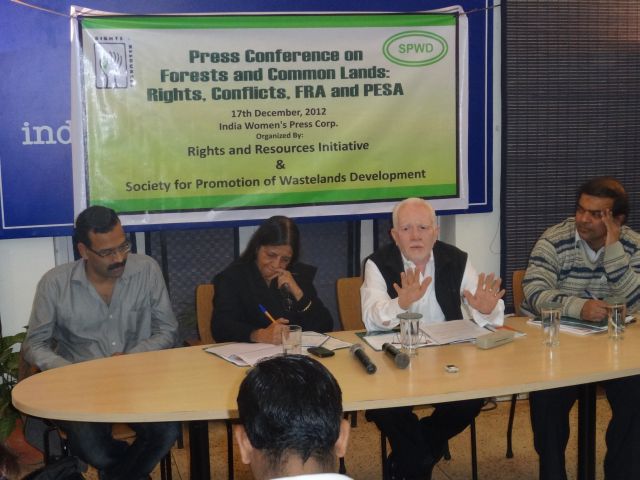Conflicts
Water in movies: Exploring the role of water in mainstream media and popular culture
Posted on 11 Mar, 2013 03:20 PMFrom the serious to the absurd, water has featured across a breadth of movies, both in Hollywood and Bollywood.
The state of environmental migration in 2011
Posted on 07 Mar, 2013 05:15 PMEnvironmental degradation & climate change have induced human mobility by creating environmental migrants.
Strategies for achieving environmental sustainability in rural development - A report by United Nations Development Programme
Posted on 23 Feb, 2013 10:22 AMThis report by the United Nations Development Programme (UNDP) presents strategies for inclusive rural development embodying the principles of environmental sustainability. It recommends measures needed to achieve green, including measuring and tracking, the use incentives and the building of capacities. It also contains a number of case studies showing how green results can be achieved.
Dealing with arsenic in rural Bihar - Evaluating the successes and failures of mitigation projects
Posted on 21 Feb, 2013 11:51 PMArticle Courtesy: Delft University of Technology
Author(s): Matthijs Brouns, Merijn Janssen, Andrew Wong
Assessing the land use change and its impact on water resources: A study on the Mula and Mutha rivers catchment area in Pune
Posted on 17 Feb, 2013 09:11 PMLand use changes hydrologic system and have potentially large impacts on water resources. An assessment in an area with seasonally limited water availability and which is subject to rapid socio- economic development and population growth will provide an exemplary view on the local impacts of major recent developments in India. In this backdrop this paper analyzes past land use changes between 1989 and 2009 and their impacts on the water balance in the Mula and Mutha Rivers catchment upstream of Pune. The aim of the paper is:
- assess the land use changes between 1989/1990 and 2009/2010
- analyze the impacts of these changes on the long-term water balance components in the Mula and Mutha Rivers catchment upstream of the city of Pune.
Moving from paddy and sugarcane to less water-intensive crops such as oilseeds, pulses and millets can help resolve the Cauvery water dispute
Posted on 14 Jan, 2013 12:10 AMWhat happens when two or more states are dependent on same water resource for agricultural purposes ? Do the states compete for the resource or are their needs sufficiently different from each other? What are the consequences of the competition for this precious resource?
This article sheds light on the dispute between Karnataka and Tamil Nadu, for sharing Cauvery river water. The ongoing tussle between the two states has seen a lot of unrest amongst farmers in form of dharnas, protests, rail roko and non-cooperation by citizens, and disagreement with the agreements made by their respective governments and unending negotiations by governments involved, to come to a mutually agreeable decision.
Drought mitigation measures through climate adaptation for securing agricultural livelihoods in Uttar Pradesh
Posted on 13 Jan, 2013 02:43 PMProlonged and recurrent drought, being experienced in India and various parts of south Asia, is the manifestation of climate change, partly caused by human interventions. Drought has been one of the primary reasons for widespread poverty and environmental degradation including deteriorating water quality and water security. The world has been more drought-prone during the past 25 years and the vulnerability of tropical countries to drought is likely to increase (Inter-governmental Panel on Climate Change, 2007).
Punjab chief minister objects to draft national water policy - Roundup of the week's news (December 31 – January 6, 2013)
Posted on 08 Jan, 2013 08:03 AMObjection raised to National water Policy






